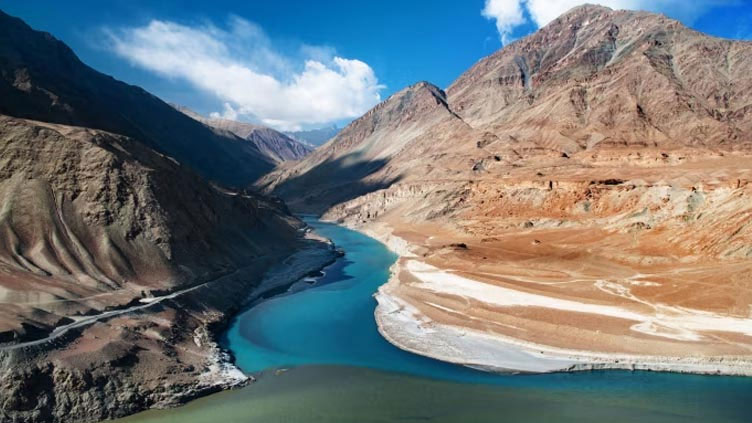India weighs plan to slash Pakistan water supply with new Indus river project

Pakistan
Modi ordered officials to expedite planning and execution of projects on the Chenab, Jhelum, Indus
NEW DELHI/ISLAMABAD (Reuters) - India is considering plans to dramatically increase the water it draws from a major river that feeds Pakistani farms downstream, as a retaliatory action for a Pahalgam attack that New Delhi blames on Islamabad.
Delhi "put in abeyance" its participation in the Indus Waters Treaty of 1960, which governs usage of the Indus river system, shortly after 26 civilians in Indian Kashmir were killed in what India called an act of terror. Pakistan has denied involvement in the incident, but the accord has not been revived despite the two nuclear-armed neighbours agreeing a ceasefire last week following the worst fighting between them in decades.
After suspending India's participation in the treaty, Indian Prime Minister Narendra Modi ordered officials to expedite planning and execution of projects on the Chenab, Jhelum and Indus rivers, three bodies of water in the Indus system that are designated primarily for Pakistan's use.
One of the key plans under discussion involves doubling to 120km the length of the Ranbir canal on the Chenab, which runs through India to Pakistan's agricultural powerhouse of Punjab. The canal was built in the 19th century, long before the treaty was signed.
India is permitted to draw a limited amount of water from the Chenab for irrigation, but an expanded canal - which experts said could take years to construct - would allow it to divert 150 cubic meters of water per second, up from about 40 cubic meters currently.
Details of the Indian government's deliberations on expanding Ranbir have not previously been reported. The discussions started last month and continue even after the ceasefire.
Pakistan Foreign Minister Ishaq Dar told lawmakers this week that the government had written to India arguing that suspending the treaty was unlawful and that Islamabad regarded it as remaining in force.
Islamabad said after India suspended the treaty in April that it considered "any attempt to stop or divert the flow of water belonging to Pakistan" to be an "act of war."
About 80% of Pakistani farms depend on the Indus system, as do nearly all hydropower projects serving the country of some 250 million.
Any efforts by Delhi to build dams, canals or other infrastructure that would withhold or divert significant amount of flow from the Indus system to India "would take years to realize," said water security expert David Michel of the Washington-based Center for Strategic and International Studies.
SUCCESS THREATENED
The Indus system runs through some of the world's most geopolitically tense areas, originating near Lake Mansarovar in Tibet and snaking through India's north and Pakistan's east and southeast, before emptying into the Arabian Sea.
The treaty is widely seen as one of the world's most successful water-sharing accords, having survived several major wars and longstanding tensions between India and Pakistan.
Islamabad has previously opposed many Indian projects in the Indus system, while Delhi said after the Kashmir attack that it had been trying to renegotiate the treaty since 2023 to account for population increases and its rising need for clean hydroenergy.
The prospective projects also include dams that can store large volumes of water, in what would be a first for India in the Indus river system.
India has identified at least five possible storage projects, four of which are on tributaries of the Chenab and Jhelum, according to the power ministry document.
POLITICAL WRANGLING
Pakistan has said that it is preparing legal action in several international forums, including the World Bank, which facilitated the treaty, as well as the Permanent Court of Arbitration or the International Court of Justice in the Hague.
"Water should not be weaponised," Pakistan's Finance Minister Muhammad Aurangzeb told Reuters on Monday. "We don't even want to consider any scenario which ... does not take into account the reinstatement of this treaty."
Michel, the U.S.-based expert, said that concern over the treaty's suspension was not limited to Islamabad.
"As geopolitical competition across the region deepens, more than a few Indian observers fear that Delhi’s use of water against Islamabad risks licensing Beijing to adopt the same strategy against India," he said.


